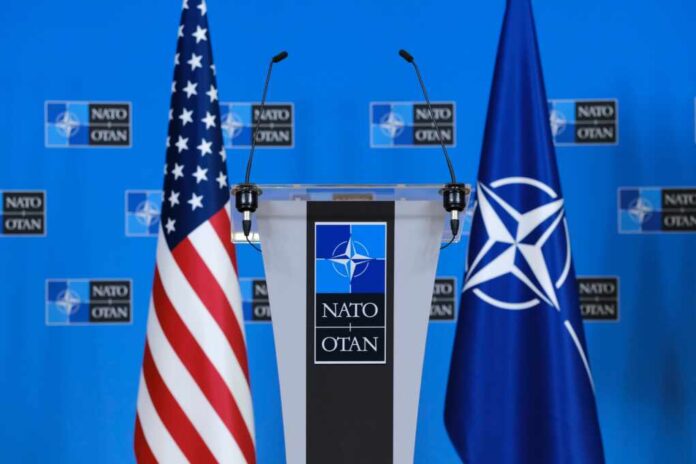
In response to continuing Russian threats, the United States is reportedly preparing to relocate nuclear weapons to the United Kingdom, marking a significant strategic shift in NATO’s defensive posture. This move, the first of its kind in nearly two decades, underscores the heightened tensions in Europe and the seriousness with which the U.S. and its allies view the threat from Russia.
According to a report published by The Telegraph, sensitive Pentagon documents reveal plans for a new facility located at RAF Lakenheath in Suffolk. This base, a relic of the Cold War era, is now poised to house B61-12 nuclear gravity bombs, with firepower surpassing that of the Hiroshima bomb by at least three-fold. These bombs, notable for their compact size, can be deployed via various fighter jets, including F-16s, F-15s and F-35s.
The resurgence of such a formidable arsenal on European soil is a clear indicator of NATO’s renewed commitment to collective defense, especially in light of Admiral Rob Bauer of the Royal Netherlands Navy and NATO’s Military Committee Chairman, warning Europeans to brace for a potential major conflict with Russia in the upcoming decades.
US to station nuclear weapons in UK to counter war threat from Russia https://t.co/sVYpmbEJZQ
— Cernovich (@Cernovich) January 26, 2024
While the Pentagon maintains its policy of neither confirming nor denying the presence of nuclear weapons at specific locations, the procurement of new equipment for RAF Lakenheath, including ballistic shields, speaks volumes. These measures are ostensibly aimed at safeguarding personnel and “high-value assets.”
In response, Maria Zakharova, a spokesperson for the Russian foreign ministry, has cautioned that relocating U.S. nuclear weapons to the U.K. would be viewed as an escalatory move, potentially leading to “compensating countermeasures” from Moscow.
As the U.S. and its NATO allies ramp up their defenses, the message to Moscow is clear — any aggression will be met with a united and formidable response. This redeployment of nuclear capabilities is not just a military maneuver but a strong political statement affirming the West’s commitment to defending democratic values and the territorial integrity of its allies.
With these developments, the Cold War’s specter looms again over Europe. However, unlike the past, today’s geopolitical landscape is far more intricate, with multiple actors and interests at play. The move to station U.S. nuclear weapons in the U.K. is a calculated step in a complex global strategy, one that signifies strength and resolve in the face of growing uncertainties.














